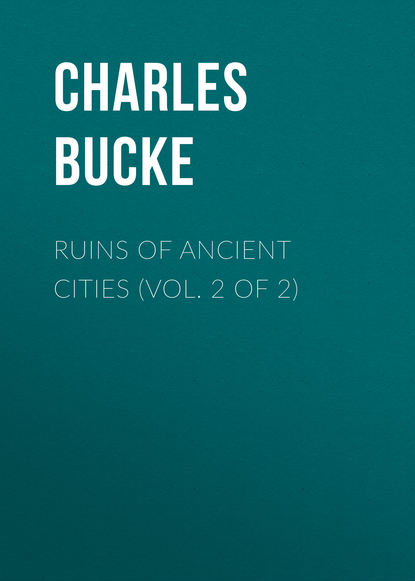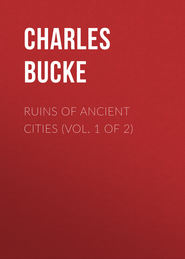По всем вопросам обращайтесь на: info@litportal.ru
(©) 2003-2024.
✖
Ruins of Ancient Cities (Vol. 2 of 2)
Настройки чтения
Размер шрифта
Высота строк
Поля
147
Pliny; Dupaty; Taylor; Knight; Chambers; Parker; Encyclop. Londinensis and Metropolitana, Rees’ and Britannica; Phillips; Chateaubriand; Eustace; Forsyth; Blunt; Stuart; Clarke; Williams; Gell.
148
Jeremiah xxxi. 15.
149
Brewster; Clarke.
150
The conquest of Greece contributed to the decay and ruin of that very empire, by introducing into Rome, by the wealth it brought into it, a taste and love for luxury and effeminate pleasures; for it is from the victory over Antiochus, and the conquest of Asia, that Pliny dates the depravity and corruption of manners in the republic of Rome, and the fatal changes which ensued. Asia, vanquished by the Roman arms, afterwards vanquished Rome by its vices. Foreign wealth extinguished in that city a love for the ancient poverty and simplicity, in which its strength and honour consisted. Luxury, that in a manner entered Rome in triumph with the superb spoils of Asia, brought with her in her train irregularities and crimes of every kind, made greater havoc in the city than the mightiest armies could have done, and in that manner avenged the conquered globe. – Rollin.
151
The cicerone said to the king of Sweden, as that monarch was looking over the ruins of the Coliseum, – “Ah, sire, what cursed Goths those were, that tore away so many fine things here, and pulled down such magnificent pillars, &c.”. “Hold, hold, friend,” cried the king, “what were your Roman nobles doing, I would ask, when they laboured to destroy an edifice like this, and build their palaces with its materials!”
152
Knight.
153
“The public colossal statues of Castor and Pollux, said to be by Phidias and Praxiteles, on Monte Cavallo,” says Mr. Williams, “are superior to all the statues of that description which I have seen in Italy. Both of the figures are in the act of guiding their horses, and are remarkable for lightness and manly beauty; suggesting no idea of huge blocks of marble, as most of the colossal statues do. The proportions of these figures are exquisite, and from certain points appear little inferior to the finest statues in the world. The horses, however, are not so well proportioned. That the sculptors might give dignity to the figures, they have made the horses comparatively small – a liberty which will not be condemned by the judicious critic.”
154
Parker.
155
Knight.
156
“After the fall of Rome,” says Vasi, “and particularly in the year 1084, when Robert Guiscard visited the city, this spot, so famous, was despoiled of all its ornaments; and the buildings having been in great part ruined, it has served from that time to our days as a market for oxen and cows, whence is derived the name of Campo Vaccino (cow-field), under which it was lately known. At the present day, however, it has lost that vile denomination, and obtained again the appellation of Forum Romanum.” Mr. Woods, however, says, that it was called Campo Vaccino, not as being the market, but as the place where the long-horned oxen, which have drawn the carts of the country-people to Rome, wait till their masters are ready to go back again. Vasi is mistaken, in saying that “this vile denomination” has been lost; it never will be lost – it is too accurately descriptive – it tells the tale of degradation too well, not to last as long as the Forum remains. Nor would it be correct to call the space marked Campo Vaccino, in the modern maps of Rome, by the name of Forum Romanum, – or Foro Romano, to use the Italian form. The Campo Vaccino is a much larger space than the existing remnant of the ancient Forum; and though it is quite correct to call that remnant a part of the Campo Vaccino, yet to call the Campo Vaccino the Forum Romanum, would give rise to very incorrect notions concerning the limits and site of the ancient Forum. – Anon.
157
Chambers.
158
Eustace.
159
Eustace.
160
Kennett.
161
Prima pares ineunt gravibus certamina remis
Quatuor ex omni delecta classe carinæ, &c.
162
Knight.
163
Kennet.
164
Parker.
165
Parker.
166
Ibid.
167
Forsyth.
168
Knight.
169
Eustace.
170
Kennet.
171






